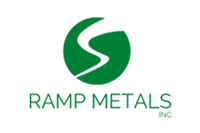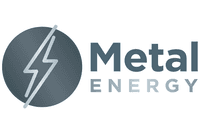Indonesia Hopes to Approve Battery-grade Nickel Plants Soon
Indonesia is still in the process of approving environmental studies for major plants, but hopes to give a thumbs up before 2020.
The government of Indonesia hopes environmental impact studies for factories to produce battery-grade nickel chemicals will be complete by the end of 2019.
The environmental studies, referred to as AMDAL, must be approved by the environment ministry in the country before investors may proceed. Companies interested in investing in the sector include Chinese stainless steel company Tsingshan Group.
Luhut Pandjaitan, Indonesia’s coordinating minister, told Reuters that he hopes the government can issue approval before the end of 2019.
According to Pandjaitan, some of the delay comes from the government revising a rule on managing waste from high-pressure leaching plants. Changes are hoped to be finalized by the end of the month.
This news comes at the heels of Indonesia’s nickel ore export ban, a push on the part of the nation’s government to turn the country into a global hub for producing and exporting electric vehicles (EVs), which require nickel for their batteries.
EVs have grown in popularity as more and more consumers turn toward the green technology in an effort to reduce their carbon footprint.
Chinese battery materials maker GEM (SZSE:002340), a subsidiary of Tsingshan Group, expects to start trial production at its nickel and cobalt plant in Morowali in August 2020.
Many analysts expect demand for nickel to grow as the EV battery sector expands. Optimists include Alex Laugharne, CRU Group’s principal consultant.
“On the demand side, we’re expecting more EVs coming on the road; I think CRU’s on the more conservative end, and we still have nickel being a very important part of that story in the long term, and other people have much more bullish forecasts,” he said to the Investing News Network previously.
“I think most people think demand could triple; it could go up by much more than that, so it’s definitely hard to not see a pretty positive story on that side,” he added.
Although Laugharne does expect demand to grow, he sees the metal gaining steam over the course of decades, rather than in the short term.
Similarly, Jim Lennon, a consultant at Macquarie, recently told INN that in the short run, batteries will only make up 5 to 7 percent of total demand — a very small portion of the market.
“The challenge for the battery industry is to find nickel units that are suitable to make the batteries,” he said. “Virtually all nickel supply growth in the past years has come from nickel pig iron … which is not suitable for the batteries — so the challenge is to compete for the available nickel units.”
Nickel enjoyed gains during the summer as speculation regarding Indonesia’s ban fluttered around, but the metal has since fallen in price. Between October 18 and Monday (November 18), its price had dropped by 10 percent, going from US$16,450 per metric ton to US$14,750.
As of Monday, nickel was trading for US$14,750.
Don’t forget to follow us @INN_Resource for real-time news updates!
Securities Disclosure: I, Sasha Dhesi, hold no direct investment interest in any company mentioned in this article.


